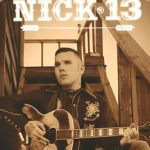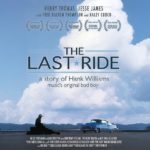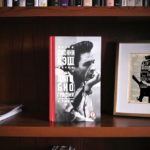“I went to jail that night. And I dreamed of all the wines and all the single girls of this best of all possible worlds,” sings Kris Kristofferson on his debut album, intertwining Voltaire’s mockery of Leibniz with the barefoot romance of the vagabonds of the American South. And let Kerouac be read by those who did not get a volume of “Huckleberry Finn.” Although young Chris did not see apple cores as delicacies, and his wanderings were legalized moves from one military base to another, he learned early freedom and loneliness going hand in hand.
The only friends of a child in the absence of two-legged friends are books, books, books. When the family of US Air Force officer Lars Kristofferson finally settled in California, Chris definitely intended to become a writer. As soon as he left school, he easily enrolled in the most prestigious liberal arts college in the country, Pomona. During his studies, Chris wrote several award-winning essays published in the Washington magazine The Atlantic Monthly.
Also, since squelches do not survive on military bases, his achievements in athletics, rugby and American football were noted by Sports Illustrated. She graduated from Pomona in 1958 with honors and a Bachelor of Arts degree in literature. Brisk Englishwomen and Englishmen immediately handed the young Kristofferson a Cecil Rhodes scholarship and dragged him to their island to acquire genuine knowledge at Oxford. Student life does not go without clubs, and at one of Chris’s parties, Larry Parnes, the burrous Carabas of British rock and roll, was spotted by Larry Parnes, who was already dangling on the strings of such stars as Tommy Steele and Billy Fury.
“Son, we’re going to show you off to the public like a Yankee from Oxford! It will be stronger than Goethe’s Gwynplaine!”- Parnes oilily impressed. “Hugo,” Kristofferson corrected. “No, the pseudonym Hugo doesn’t suit you. It’s too Dutch. And it seems that someone with that name is already performing in Glasgow. You’ll be Chris Carson!” – Lawrence Maurice Parnes busily raised a finger with a clipped nail to the sky.
The newly minted Chris Carson scratched his temple in agreement, thinking that a career as a pop singer would help build a literary career. After a single and two additional rehearsals, Larry realized that the bet had not been played, and rode off into the sunset with the grace of a possessed mongrel. This is how the first stage of Kris Kristofferson’s musical career ended.
After receiving a bachelor’s degree in philology, in 1961, he successfully asked Fran Beer, whom he had been dating for a couple of years in a row, for his hand in marriage. Whether it was before, after, or during the wedding night, Colonel Lars Kristofferson emphatically declared that, they say, stop making faces on campuses, engaging in verbiage, it’s time, they say, to continue the work of the dynasty, they say, warriors.


Chris joins the regular forces with the rank of second lieutenant. After completing his flight courses, he is sent to Germany, where the damned communists are swarming behind the wall. The situation on the border with the GDR is so tense that a couple of years before the arrival of Jr. ltn. At Kristofferson’s, Sergeant Presley shot the film G.I.Blues there, with a demonstration of NATO military equipment and breaks for lights out and watch. Realizing the hardships of the service, Chris puts together a band with which he indulges in music all twelve hours a day, free from his wife and division. In 1965, his service in Germany was coming to an end, and Kristofferson was sent to West Point to teach cadets how to open Dickens books. By this time, the captain had (rehearsed), Chris refuses and leaves the army, deciding to devote himself to music. General Lars Kristofferson curses his son and excommunicates him from the family hearth. My son is leaving for Nashville, the capital of country music.
The next few years were perhaps the hardest in Chris’ life, but without them he would not have developed as a true Poet. After getting a job as a janitor at Columbia Studios, one day he caught June Carter and handed her his demo tape with a request to give it to Johnny Cash. And June passed it on, and Johnny packed it into a special barn with the rest of the million demo recordings. Chris’s second son was born with a gastrointestinal defect, and in order to pay his hospital bills, he had to get a job as a helicopter pilot for a Louisiana oil company. It was there, sitting on top of a platform swaying to the beat of the Gulf of Mexico, that Kris Kristofferson wrote his main songs. Ocean and wind. Loneliness and freedom.
In one of the bars, celebrating the end of the working day, Chris started a conversation with the soldiers who had just returned from Vietnam. Having heard first-hand about the atrocities committed by the US military against the civilian population, he will forever remain an opponent of the cannibalistic foreign policy of the White House.
Already under Reagan, he would declare: “the Nazis would have turned pale from the propaganda that home television brings us.”
Chris’s song Viet Nam Blues, performed by Dave Dudley, became his first success, reaching number 12 on the country charts in 1966. During these years, Kristofferson worked with the music publishing house Buckhorn Music, which did not allow him to record his own versions of songs, providing other artists with only notes of his compositions. Because Kristofferson sings, according to one of the executives, like a toad in the swamps of Florida. The wife files for divorce, tired of enduring the absence of her husband and his pursuit of sunbeams. The oil company is making a final reprimand for alcohol abuse. Ignoring everything, Chris finally gets Johnny Cash’s attention by landing a company helicopter near his house. That’s how Chris and Johnny’s friendship began, reinforced by a creative collaboration that lasted until Cash’s death.

After divorcing his wife, Kristofferson is also divorcing his publishing company, switching to Monument Records. Owner and producer Fred Foster was delighted with the material, forcing the singer to sign a contract for ten albums of copyrighted material. Foster also suggested the idea of a “road” song about Bobby McKee, that was the name of Boudlo Bryant’s secretary, the composer of many songs by the Everly brothers. McKee’s last name imperceptibly transformed into McGee, Fred was deservedly named a co-author, and meanwhile Chris is slowly starting to perform, performing several songs in Johnny Cash’s concert blocks, his songs are already being recorded by Jerry Lee Lewis and Kenny Rogers.
Kris Kristofferson – Me and Bobby McGee

In 1969, Chris flew to Peru to make his debut in Dennis Hopper’s lysergine film The Last Movie. At the same time, he has a fleeting affair with Janis Joplin. A few days before her sudden departure, Janice will record Me And Bobbie McGee without asking Chris’s permission or having time to inform him. Joplin’s version was released only a year after her death, and it’s hard not to notice how accurately the voice and mood match the material, this magic is impossible to resist, the single instantly soared to the top of the charts, becoming Janice’s only number 1.
Janis Joplin – Me and Bobby McGee

Chris, having heard it by chance on the radio, was so shocked that the next day he started working on the second album, while the guys from Monument deftly made a fuss, changing the dark envelopes for the first album, laconically titled Kris Kristofferson, to more hippy ones with the expanded Kris Kristofferson – Me And Bobbie McGee. Despite such an elegant commercial decision, the debut album sold poorly. Although now, more than half a century after its release, we can confidently say that this record alone would be enough to forever inscribe the name of Kris Kristofferson on the tablets of Eternity. So we should take a closer look at this collection of songs. Part II. To Beat The Devil















